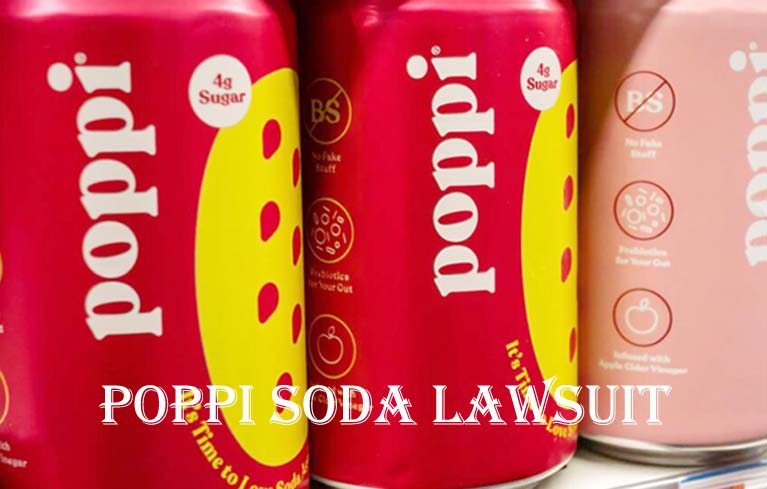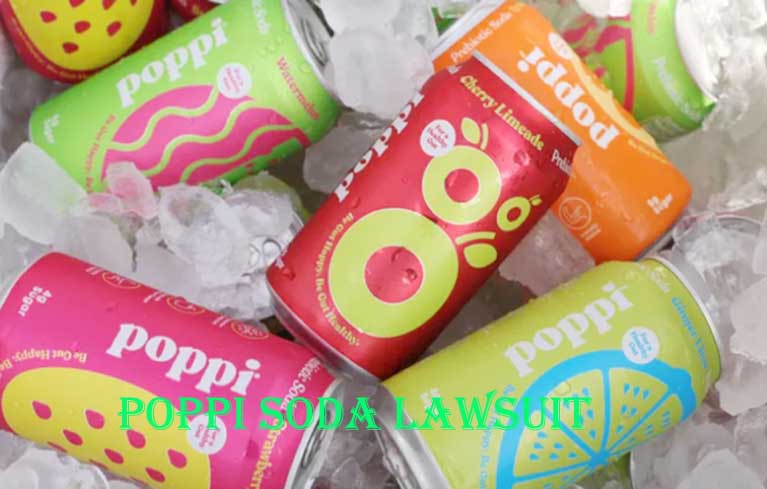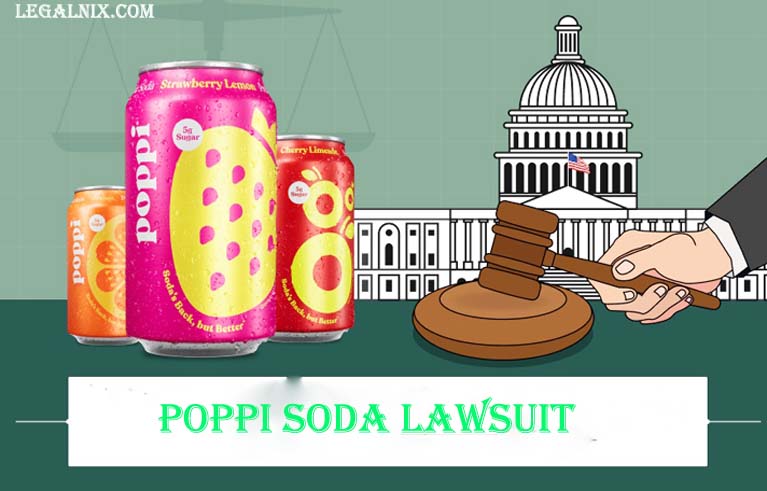Poppi Soda Lawsuit That Shook the Beverage Industry
Poppi soda, a brand that soared to popularity with its promises of gut health and prebiotic benefits, became a staple for many consumers seeking functional beverages. With an eye-catching range of fruity flavors, this drink marketed itself as more than just a refreshing option. Instead, it promised to promote digestive health with prebiotics derived from agave inulin, claiming to help maintain gut balance and improve overall well-being.
However, these claims are now at the center of a significant class action lawsuit, which alleges that the health benefits Poppi marketed were misleading. Consumers were drawn to the soda based on these promises, only to later find out that the product’s ingredients were not as effective as advertised. The lawsuit primarily targets false advertising and the inflated claims about the product’s prebiotic fiber content.
This article delves into the Poppi soda lawsuit, the $8.9 million settlement reached in its wake, and what it means for consumers and the beverage industry. We’ll also explore the settlement’s details, how affected consumers can file claims, and the future of functional beverages in light of this legal action.

Poppi’s Marketing Claims: What Was Promised?
When Poppi first hit the market, it quickly garnered attention for its bold claims. The soda was advertised as a drink that could improve gut health through the power of prebiotics. Prebiotics are fibers that fuel beneficial bacteria in the digestive system, which are known to help improve digestion and overall gut microbiome health. Poppi’s primary selling point was that its sodas contained inulin, a prebiotic fiber sourced from agave.
The key difference between Poppi and other sodas was that it not only promised to be healthy but also to bring happiness, as people would enjoy the taste of a carbonated sweet drink. In marketing, the idea is that taking Poppi may help resolve bloating and poor digestion, and it may be used to manage weight. All this was enticing, particularly in a market that is now learn towards gut-friendly and functional foods. The company’s messages highlighted the natural advantages of its product, creating an image of a refreshing drink that is good for health.
However, the suit defied these arguments by raising the issue of whether there was proven efficacy of the prebiotic composition in its sodas. The plaintiffs argued that the product’s ingredients were in insufficient quantity to provide the required health benefits as portrayed. This means that to achieve any significant improvements to the health of your gut, you would need to consume many cans of Poppi, which, even then, your body would probably not absorb most of the beneficial effects because of the sheer amount of sugar in the beverage.
The Lawsuit: False Advertising Allegations
In June 2024, a class action lawsuit was filed against Poppi by a group of consumers who believed they had been misled by the soda’s health claims. The plaintiffs argued that the brand falsely advertised its product as being beneficial for gut health without providing enough scientific evidence to back those claims.
At the heart of the lawsuit was the argument that Poppi’s prebiotic fiber content—just 2 grams per can—was far too low to have any meaningful impact on digestive health. To experience real benefits from prebiotics, the lawsuit suggested, a person would have to consume multiple cans in a single day. However, drinking several cans of Poppi could lead to excessive sugar intake, which would likely counteract the potential benefits of the prebiotics.
The suit also claimed that many consumers bought Poppi drinks under the impression that they were paying for a gut health product, when in fact, the health claims were misleading and unsubstantiated.
The $8.9 Million Settlement: What Does It Mean for Consumers?
After months of legal proceedings, Poppi reached a settlement agreement worth $8.9 million to resolve the class action lawsuit. While Poppi denied any wrongdoing and stood by the integrity of its product, the company decided to settle the case to avoid a prolonged legal battle.
The settlement, if approved by the court, would benefit U.S. residents who purchased Poppi products between January 23, 2020, and July 18, 2025. Eligible consumers can file a claim to receive compensation for their purchases, even if they do not have a receipt. However, those who provide proof of purchase will be able to claim a larger payout.
Here’s how the Poppi settlement payouts are structured:
-
$0.75 for each 12- or 16-ounce can.
-
$3 for a 4-pack.
-
$6 for an 8-pack.
-
$9 for a 12- or 15-pack.
For those who do not have proof of purchase, the maximum payout is capped at $16. However, for those with receipts or other documentation, there is no cap on the payout.
Consumers who wish to take part in the settlement must submit a claim form either online or by mail. The deadline for submitting claims is set for September 26, 2025.

What the Settlement Means for Poppi and the Industry
This trial and settlement will occur as the use of functional beverages has become very popular, such as the prebiotic sodas. Although the product used by Poppi might not have lived up to its promises, the case can serve as a lesson concerning the need for products to be transparent and correctly advertised.
The company also chose to pay the suit a few months after PepsiCo bought it to gain control of the firm in a deal worth $1.95 billion, which indicates greater business interests being played out. In the case of PepsiCo, the settlement may influence the future branding and marketing of Poppi, particularly in light of consumers’ increasing demands for clear and truthful health claims.
This case highlights a significant issue in the beverage sector: the need for consumer protection and reliable health claims. As functional beverages gain popularity, the greater selection and popularity lead to more questions about the health benefits people assume they can gain from using these products.
Conclusion
The case of Poppi soda and the subsequent settlement of $ 8.9 million raises urgent concerns about the advertising strategies of the functional beverage manufacturer. Although the Poppi products contained misleading information about gut health and prebiotic benefits, the settlement provides an opportunity for affected consumers to receive compensation. When one follows this case, it can be a helpful reminder to anyone who happens to be a consumer about the strength of a class action lawsuit and how companies should be held accountable when they market their products.
We can expect that in the coming months, there will be much more care taken on health-related claims, especially in the food and beverage industry, along with more of a focus on product transparency and proven health benefits. The experience of Poppi will surely be considered as a case study for brands and consumers in the future.
You May Also Like: Bank of America Faces a New Lawsuit from UBS

